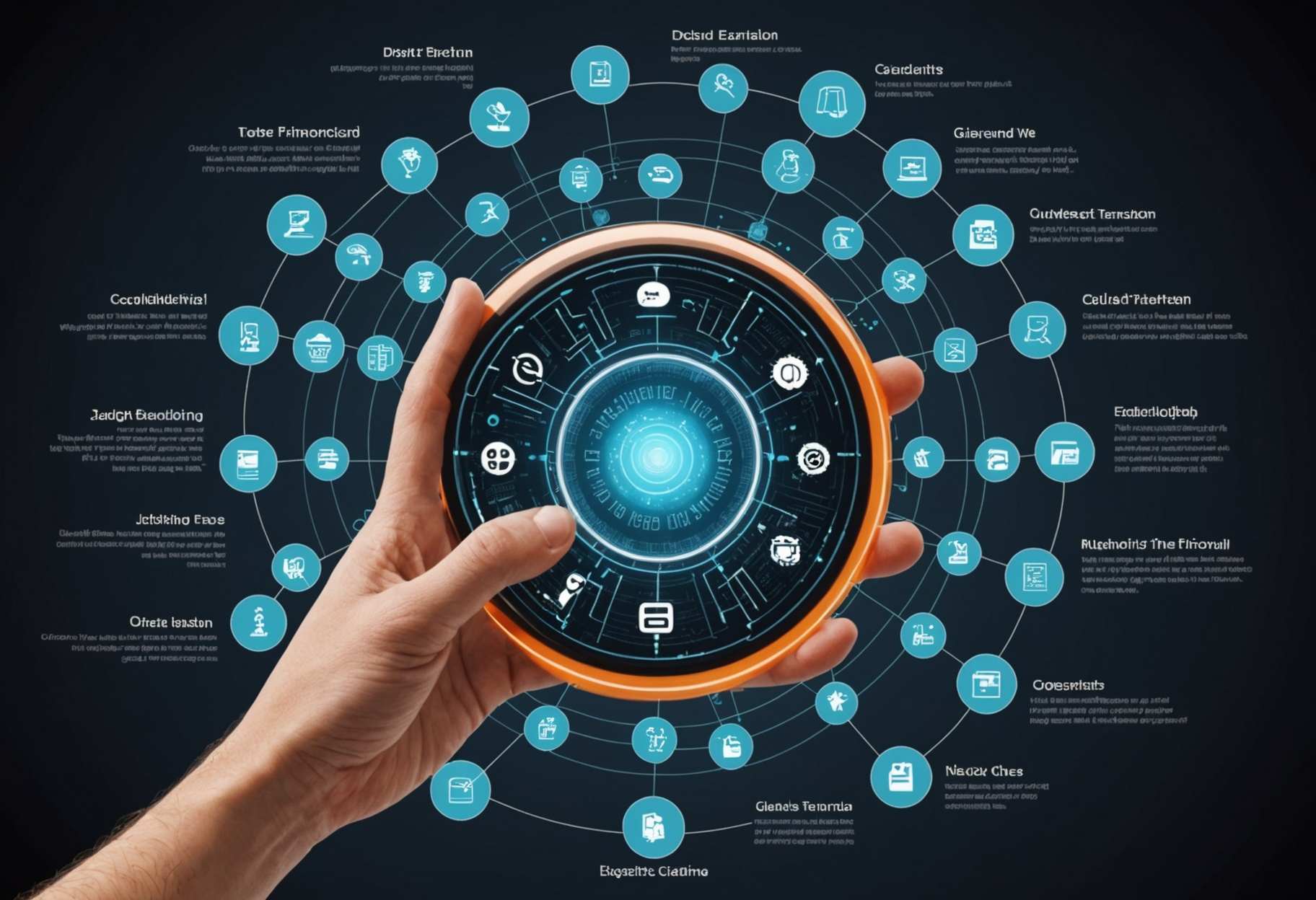Top 10 Arising Advances That Will Shape What's in store

Innovative headways are ceaselessly changing our reality, prompting tremendous changes across different businesses and circles of life. As we progress into the future, a few arising innovations can possibly essentially change how we live, work, and communicate. This article looks at ten encouraging arising advancements that are set to impact what's in store.
**Man-made consciousness (AI):**
Man-made intelligence addresses a progressive innovation that empowers machines to learn, reason, and go with choices freely. Uses of simulated intelligence length from menial helpers and independent vehicles to complex clinical diagnostics and custom fitted instructive encounters. The continuous headway of man-made intelligence is supposed to fundamentally affect ventures, upgrade proficiency, and work on day to day existence.
**Web of Things (IoT):**
The Web of Things alludes to an interconnected organization of actual gadgets installed with sensors, programming, and network that work with consistent correspondence and information trade. This incorporation prompts brilliant homes, interconnected urban communities, and streamlined modern tasks.
**5G Technology:**
Fifth-age (5G) innovation denotes an impressive jump in remote correspondence. Offering quicker information speeds, decreased inertness, and expanded limit, 5G is set to change areas like medical services, increased reality, and self-driving vehicles.
**Biotechnology:**
Biotechnology includes different advances that use natural frameworks and living creatures to make inventive arrangements. Its applications incorporate quality altering, customized medical services, and maintainable biofuels, resolving basic worldwide issues in wellbeing, farming, and ecological maintainability.
**Quantum Computing:**
Quantum figuring use quantum mechanics standards to execute complex computations at speeds far surpassing those of conventional PCs. This innovation is ready to have huge ramifications for fields like cryptography, streamlining, and drug research.
**Sustainable Energy:**
Progress in environmentally friendly power advancements, including sunlight based, wind, and hydropower, is propelling the shift towards a more economical future. The improved productivity and reasonableness of sustainable power sources assume a vital part in creating some distance from petroleum derivatives.
**Blockchain:**
Blockchain is a decentralized and sealed record innovation that guarantees secure record-keeping. While frequently connected with cryptographic forms of money, its applications reach out to inventory network the executives, casting a ballot frameworks, and computerized character confirmation.
**Nanotechnology:**
Nanotechnology includes controlling materials at the sub-atomic or nuclear level to develop new materials and gadgets with particular properties. Applications incorporate high level medication conveyance frameworks and more proficient energy stockpiling strategies.
**Expanded Reality (AR) and Augmented Reality (VR):**
AR and VR advances give vivid encounters that blend computerized and actual domains. AR enhances certifiable conditions with virtual components, while VR develops altogether virtual settings. These advances have significant expected in gaming, schooling, proficient preparation, and diversion.
**Space Investigation and Colonization:**
Advancements in space innovation are making ready for investigation and possible colonization of heavenly bodies. Both privately owned businesses and administrative organizations are embraced missions focusing on Mars and then some, widening the extent of human investigation.
**Conclusion:**
What's to come is impacted by arising advancements that stretch the constraints of development and human potential. Artificial intelligence, IoT, 5G innovation, biotechnology, quantum processing, sustainable power, blockchain, nanotechnology, AR, VR, and space investigation rank among the ten basic advancements that will shape our reality in the forthcoming years.
These innovations vow to handle worldwide difficulties, improve personal satisfaction, and advance a practical, interconnected future. As they proceed to develop and become coordinated into our lives, their ability to change businesses, rethink human capacities, and disclose new opportunities for what's to come turns out to be progressively clear. Mindful reception and influence of these advancements will be crucial in exploring the thrilling excursion ahead.
**Man-made consciousness (AI):**
Man-made intelligence addresses a progressive innovation that empowers machines to learn, reason, and go with choices freely. Uses of simulated intelligence length from menial helpers and independent vehicles to complex clinical diagnostics and custom fitted instructive encounters. The continuous headway of man-made intelligence is supposed to fundamentally affect ventures, upgrade proficiency, and work on day to day existence.
**Web of Things (IoT):**
The Web of Things alludes to an interconnected organization of actual gadgets installed with sensors, programming, and network that work with consistent correspondence and information trade. This incorporation prompts brilliant homes, interconnected urban communities, and streamlined modern tasks.
**5G Technology:**
Fifth-age (5G) innovation denotes an impressive jump in remote correspondence. Offering quicker information speeds, decreased inertness, and expanded limit, 5G is set to change areas like medical services, increased reality, and self-driving vehicles.
**Biotechnology:**
Biotechnology includes different advances that use natural frameworks and living creatures to make inventive arrangements. Its applications incorporate quality altering, customized medical services, and maintainable biofuels, resolving basic worldwide issues in wellbeing, farming, and ecological maintainability.
**Quantum Computing:**
Quantum figuring use quantum mechanics standards to execute complex computations at speeds far surpassing those of conventional PCs. This innovation is ready to have huge ramifications for fields like cryptography, streamlining, and drug research.
**Sustainable Energy:**
Progress in environmentally friendly power advancements, including sunlight based, wind, and hydropower, is propelling the shift towards a more economical future. The improved productivity and reasonableness of sustainable power sources assume a vital part in creating some distance from petroleum derivatives.
**Blockchain:**
Blockchain is a decentralized and sealed record innovation that guarantees secure record-keeping. While frequently connected with cryptographic forms of money, its applications reach out to inventory network the executives, casting a ballot frameworks, and computerized character confirmation.
**Nanotechnology:**
Nanotechnology includes controlling materials at the sub-atomic or nuclear level to develop new materials and gadgets with particular properties. Applications incorporate high level medication conveyance frameworks and more proficient energy stockpiling strategies.
**Expanded Reality (AR) and Augmented Reality (VR):**
AR and VR advances give vivid encounters that blend computerized and actual domains. AR enhances certifiable conditions with virtual components, while VR develops altogether virtual settings. These advances have significant expected in gaming, schooling, proficient preparation, and diversion.
**Space Investigation and Colonization:**
Advancements in space innovation are making ready for investigation and possible colonization of heavenly bodies. Both privately owned businesses and administrative organizations are embraced missions focusing on Mars and then some, widening the extent of human investigation.
**Conclusion:**
What's to come is impacted by arising advancements that stretch the constraints of development and human potential. Artificial intelligence, IoT, 5G innovation, biotechnology, quantum processing, sustainable power, blockchain, nanotechnology, AR, VR, and space investigation rank among the ten basic advancements that will shape our reality in the forthcoming years.
These innovations vow to handle worldwide difficulties, improve personal satisfaction, and advance a practical, interconnected future. As they proceed to develop and become coordinated into our lives, their ability to change businesses, rethink human capacities, and disclose new opportunities for what's to come turns out to be progressively clear. Mindful reception and influence of these advancements will be crucial in exploring the thrilling excursion ahead.
Share this article
 Cruising Solo All over the Planet: An Excursion of Self-Disclosure
Cruising Solo All over the Planet: An Excursion of Self-Disclosure A Past filled with Old Civilizations: The World's Most established Societies
A Past filled with Old Civilizations: The World's Most established Societies Home Plan Tips for Seniors
Home Plan Tips for Seniors Top Pastry: What's Your Sweet Treat of Decision?
Top Pastry: What's Your Sweet Treat of Decision? Find the Advantages of Deep rooted Getting the hang of: Extending Information and Self-awareness
Find the Advantages of Deep rooted Getting the hang of: Extending Information and Self-awareness Best Getaway destination: Ocean side, Mountain, or City
Best Getaway destination: Ocean side, Mountain, or City Tech Devices 2023: The Most blazing Arrivals of the Year
Tech Devices 2023: The Most blazing Arrivals of the Year Hot Electric Vehicles for 2023
Hot Electric Vehicles for 2023 Experience Sports in Dubai: A Daredevil's Aide
Experience Sports in Dubai: A Daredevil's Aide













